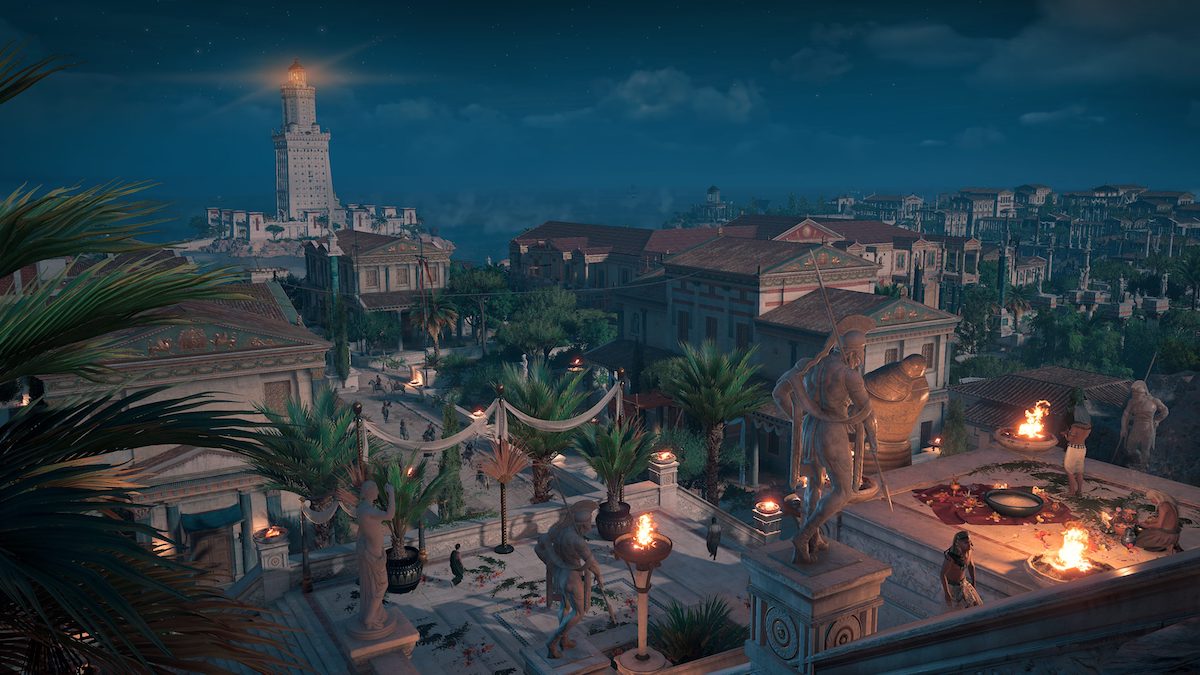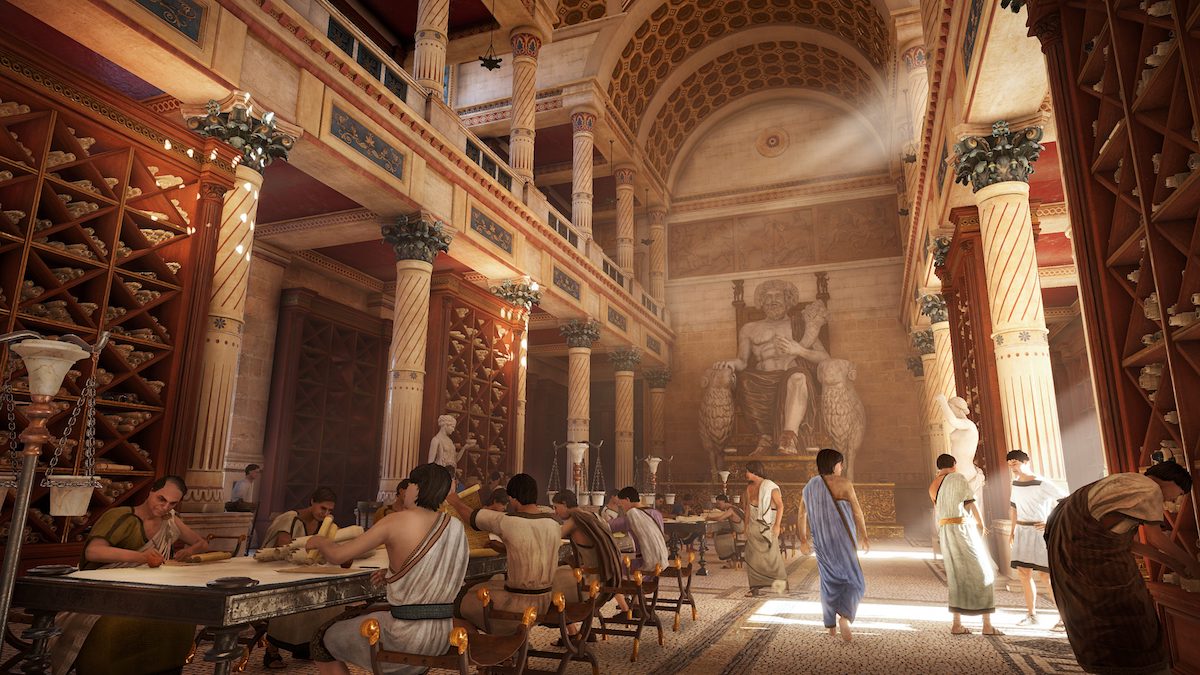Will educators warm up to the learning possibilities of games like Assassin’s Creed?
Without a time machine, the world of ancient Egypt that most people know is a half-finished puzzle pieced together by egyptologists. Until now. The sun-dappled streets of Alexandria, ancient temples dedicated to long-forgotten gods, even the nose of the Great Sphynx, long swallowed by the sands of time, have been unearthed by a surprising tool: a video game. Developer Ubisoft Montreal’s Assassin’s Creed franchise has let players sneak and murder their way through vivid recreations of history’s most interesting settings. But this year, the series makes its first big leap into a whole new world – education.
While the game version of Assassin’s Creed Origins takes players on a bloody revenge quest through a startlingly well-realized version of ancient Egypt, this February the creators released a new combat-free virtual museum tour called Discovery Mode which gives teachers and students the chance to explore Ancient Egypt. It’s a major step for commercial video games and one that more games have made over the past few years as they move from the living room to the classroom.
“[Ubisoft] has created a wonderful opportunity,” says Paul Darvasi, an English teacher and game-based learning researcher and advocate who has his students “read” modern video games like texts. “What these games have done is leverage incredible budgets to create very rich and historically accurate environments that can only benefit a history teacher that wants to give their students an engaging and enjoyable experience.”

Assassin’s Creed is just the latest, and most high profile, commercial video game series to enter the classroom. The first commercial video game many educators flocked to was Minecraft, a game based around exploring, excavating and building. According to Jordan Shapiro, a professor at Temple University’s Intellectual Heritage department, the game’s open-ended design has allowed teachers to educate their students on everything from electrical circuits to urban design.
Ever since the 1980s, teachers have found a home for video games in the classroom. Carmen Sandiego and Math Blaster! were part of the so-called “edutainment” movement, designed specifically to help kids learn geography and math. But in the past few years, educational games have taken a back seat to commercial video games. One reason – games built for learning aren’t as engaging.
As students become increasingly engaged with media, teachers must adapt their tools and find creative new ways to help them learn. By exploring Ancient Egypt with the help of 75 different interactive tours, Assassin’s Creed Origins is hoping to help teachers do just that.
“[It’s] the fact that students are much more interested in becoming part of a participatory, interactive activity than a passive spectatorial activity,” says Darvasi.
Darvasi uses games like Grand Theft Auto 5 to examine issues of race, gender and representation in the media. Using major commercial releases like this – Grand Theft Auto 5 has a player base of over 90 million – allows him to meet his students in a media environment they are already familiar with. In the process he’s been able to make the lessons more meaningful and engaging.
Grand Theft Auto 5 also allows Darvasi to teach his students empathy, an important emotional skill and something games are uniquely suited to teaching alongside measurable skills like critical thinking. “Games are empathy machines,” says Matt Farber, an assistant professor of technology, innovation and pedagogy at the University of Northern Colorado. “They have an incredible emotional palette.”
Darvasi has been relatively lucky. For other teachers, the conflict between video games as a 21st century learning tool and 20th century ideas of schooling can become an impenetrable barrier.
“One of the ‘weaknesses’ of game-based learning is that there is a significant gap between what education measures and wants students to know and what video games are good at teaching,” says Terry Heick. Heick taught English in the Kentucky public school system, fighting to use commercial video games like Portal, LittleBigPlanet and Fallout 3 to teach his students about narrative and character development. But Heick faced pushback. His administrators couldn’t see the “outwardly visible” benefits of his new media lesson plans. Heick has since gone on to found TeachThought, an online resource for teachers who want to learn how to use technology in the classroom.
The skills that video games impart to students like strategic thinking, planning, judgement and empathy can be incredibly valuable lessons – perhaps more valuable than the measurable skills taught in the classroom. Unfortunately, when it comes to testing and meeting teaching standards, these skills aren’t easily measured by most rubrics.
It’s up to teachers to find creative ways to integrate games into their curriculum. While Minecraft remains the poster child for commercial video games in the classroom, Assassin’s Creed Origins’s move into education could signify a larger shift in thinking for other major game developers – one in which games help students learn in new, engaging ways and transport them to long-lost worlds or bold new frontiers in the process.
But as education continues to evolve with technology, it’s important to remember where its heart lies. As Mark Schlichting, the creator of Livings Books and one of the forefathers of edutainment, admits: a tool is only as good as the teacher who wields it.
“Software never replaces the place of a good teacher, but there are times when the teacher needs help,” says Schlichting. Video games “are great ways to do that.”





